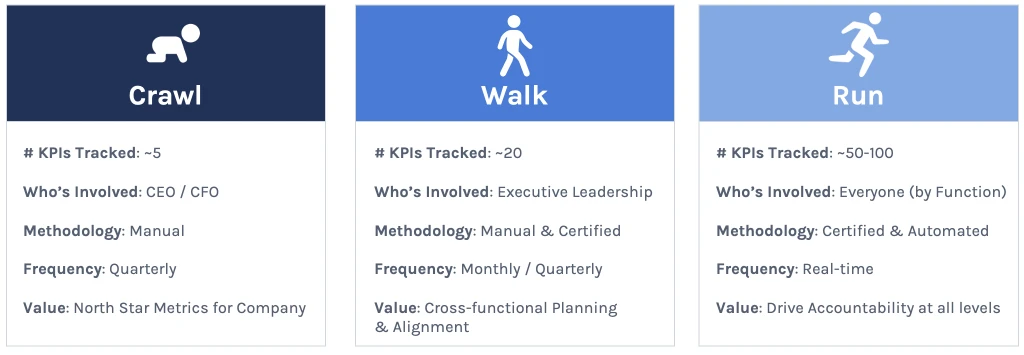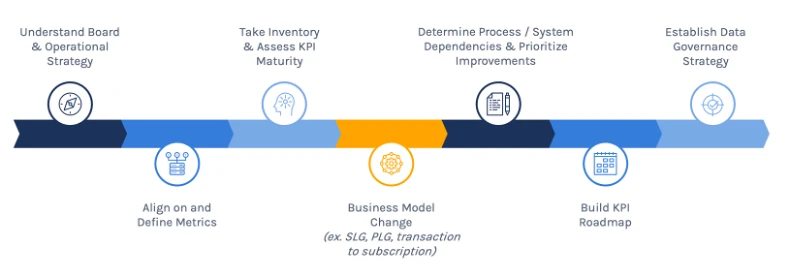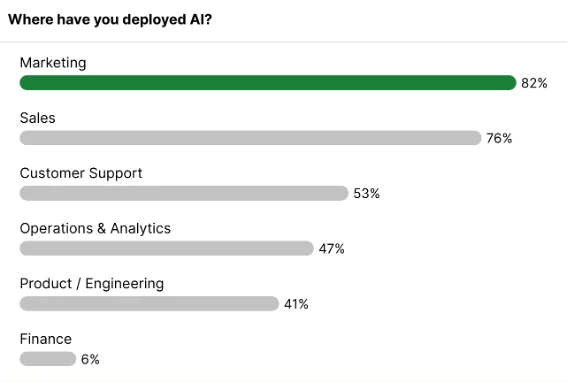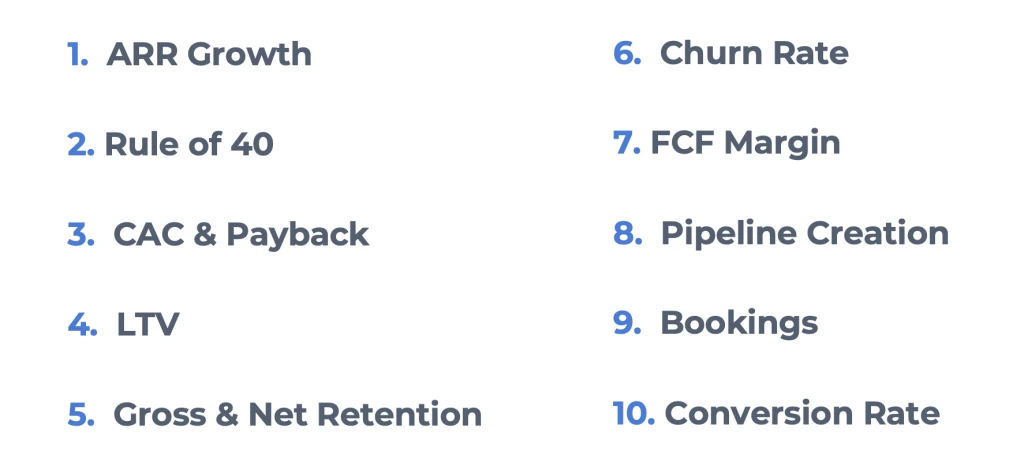
In 2024, the economic landscape has been marked by uncertainty. The Fed cut interest rates for the first time in three years in September, bringing yields to 4%. Although lower than the peak in recent years, they remain significantly higher than the sub-1% rates seen in 2021.
Businesses, particularly in software, are navigating fluctuating valuations, where larger companies fare better than smaller players. Against this backdrop, the focus on operational efficiency and sustainable growth has intensified, making KPIs more crucial than ever.
A major tailwind in this shift is the rise of AI, particularly generative AI, which is transforming business operations. AI enables automation and delivers deeper insights, transforming how companies track performance and make decisions. This convergence of AI and KPIs offers companies a roadmap for proactive decision-making, real-time optimization, and strategic foresight in an uncertain economy.
1. KPIs Differentiate Exceptional CXOs from the Rest
Exceptional CXOs stand out by their mastery of KPIs, which have evolved from static indicators into dynamic tools for decision-making. Leading indicators—like pipeline velocity and customer acquisition efficiency—are increasingly prioritized for their ability to predict performance and allow proactive adjustments.
Mastering the use of these metrics enables executives to make quicker, more informed decisions, setting them apart from competitors.
2. Operationalizing a KPI-First Framework Takes Time
Building a KPI-first approach, where decisions are guided by automated, real-time metrics, is a gradual process. Many companies are still in the early stages, relying on manual KPI management across departments.

To reach maturity, organizations must map out a clear strategy—aligning board-level and operational goals with key metrics. Over time, automating KPI tracking across the company brings faster decision-making and greater accountability.

3. AI-Savvy GTM Leaders Will Drive Transformative Change
AI is reshaping go-to-market (GTM) strategies. Machine learning and GenAI enable organizations to gain deeper insights, obtain objective advice and forecast performance with accuracy. GTM leaders who invest in understanding AI’s potential and align it with KPI management will unlock efficiencies and strategic growth previously out of reach.
A live survey at Pavilion’s GTM Summit found that 82% of respondents had already deployed AI in marketing, with 72% leveraging it in sales.

4. Boards Expect Digital Acceleration
Boards today expect companies to deliver measurable outcomes from new strategies and investments, particularly through KPI tracking. Tools like Discern can provide real-time visibility into key metrics, such as ARR growth and retention, meeting the high expectations for fast, data-driven action.

5. Benchmarks Provide Crucial Context for KPIs
Tracking KPIs is essential, but without benchmarks, companies lack context to evaluate their performance. Benchmarks help organizations understand how their KPIs stack up against industry standards and peers, giving insights into areas for improvement or celebration.
Discern’s benchmarking solution accelerates this process by aggregating and analyzing data across industries, offering up-to-date benchmarks with ease, helping companies make more informed decisions.
Conclusion
The integration of AI and KPIs is reshaping the business landscape. A KPI-first framework, supported by AI and bolstered by benchmarks, drives efficiency, fosters growth, and ensures competitiveness. As companies continue to embrace AI, those that can harness KPIs effectively will be best positioned to thrive in the years ahead.



